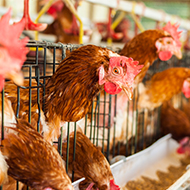
IMHA is a serious and often fatal blood disease of dogs.
The Royal Veterinary College has received more than $99,000 of funding to advance research into immune-mediated haemolytic anaemia (IMHA).
The grant from Allen and Barbara Dearry, through the Morris Animal Foundation, aims to support the study of mechanisms that cause IMHA using state-of-the-art single-cell RNA sequencing techniques. Furthermore, it will support the evaluation of various treatments with fewer side effects.
IMHA is a serious and often fatal blood disease of dogs that occurs when the immune system starts attacking its own red blood cells, eventually leading to their destruction.
It is usually treated with medications that suppress the immune system and prevent the body from destroying its own red blood cells. However, these medications also cause serious side effects, such as panting, muscle wastage and lethargy, which can be distressing for dogs and their owners.
The research, led by Dr Barbara Glanemann, associate professor in small animal medicine at the RVC, will use new technology to assess each blood cell collected from dogs with IMHA. The findings will enhance understanding of gene activation, and shed light on the underlying issues within the patient's immune system.
Researchers will compare the results to those from healthy dogs to learn how and why the immune attacks red blood cells and could find new therapeutic targets for drug development.
Furthermore, the team will assess how cells from dogs with IMHA respond to common medications to create prediction models that vets can use to help decide which medication would be most appropriate.
Dr Barbara Glanemann said: “We are excited to uncover new information on how IMHA develops in our dogs and are hoping to identify what therapy works best for individual dogs, which could have a major impact on the quality of life for dogs with this distressing disease.”
Dr Kelly Diehl, senior director of science ommunications at Morris Animal Foundation, added: "We’re very excited to fund these projects and we hope to make a significant difference in the understanding and treatment of this important but underfunded disease.”
Image (C) RVC.



 An Avian Influenza Prevention Zone (AIPZ) has been introduced across Wales.
An Avian Influenza Prevention Zone (AIPZ) has been introduced across Wales.